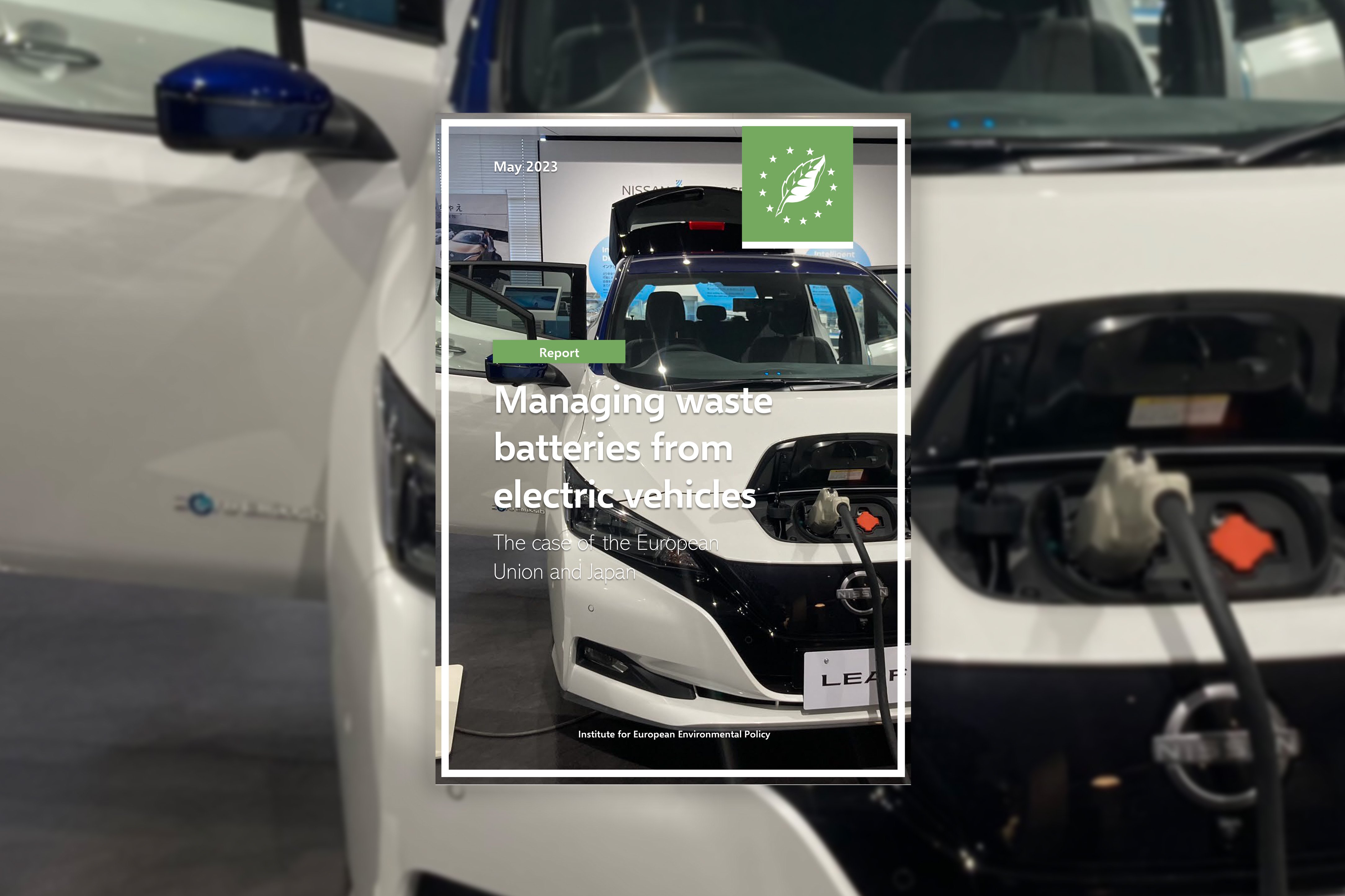AUTHORS: Andrew Farmer and Emma Watkins
This new report explores challenges related to the future management of waste batteries from electric vehicles, focusing on the approaches taken by the European Union and Japan.
Sales of EVs are growing significantly around the world, driven in large part by the need to reduce greenhouse gas (GHG) emissions. However, the rapid growth in EVs will in the coming years lead to the generation of a large number of waste batteries. We will therefore face the challenge of how to deal with these batteries once they reach the end of their first life in EVs.
The report, supported by the Great Britain Sasakawa Foundation and produced by the Institute for European Environmental Policy (IEEP), explores aspects of the rapid growth in electric vehicles (EVs), and considers current and potential future approaches to the management of EV batteries once they reach their end-of-life phase.
Key elements of the report include:
- An overview of the state of play on EV batteries, including battery types, trends and the policies driving them;
- Existing approaches to the management of end-of-life and waste EV batteries, including waste prevention, reuse, repurposing and recycling;
- Current policies for the management of waste batteries in the EU (including the new regulation on batteries) and Japan;
- Future policy options related to policy and legislation, battery design and information, economic and financial considerations, and international considerations;
- The report aims to contribute to policy learning between the EU and Japan.



